Crime
International Authorities Seize Nearly 10,000 Illicit Cultural Artifacts and Make 52 Arrests in the Latest Wave of Crackdowns
Authorities have recovered 147,050 looted cultural goods since launching Operation Pandora in 2016.
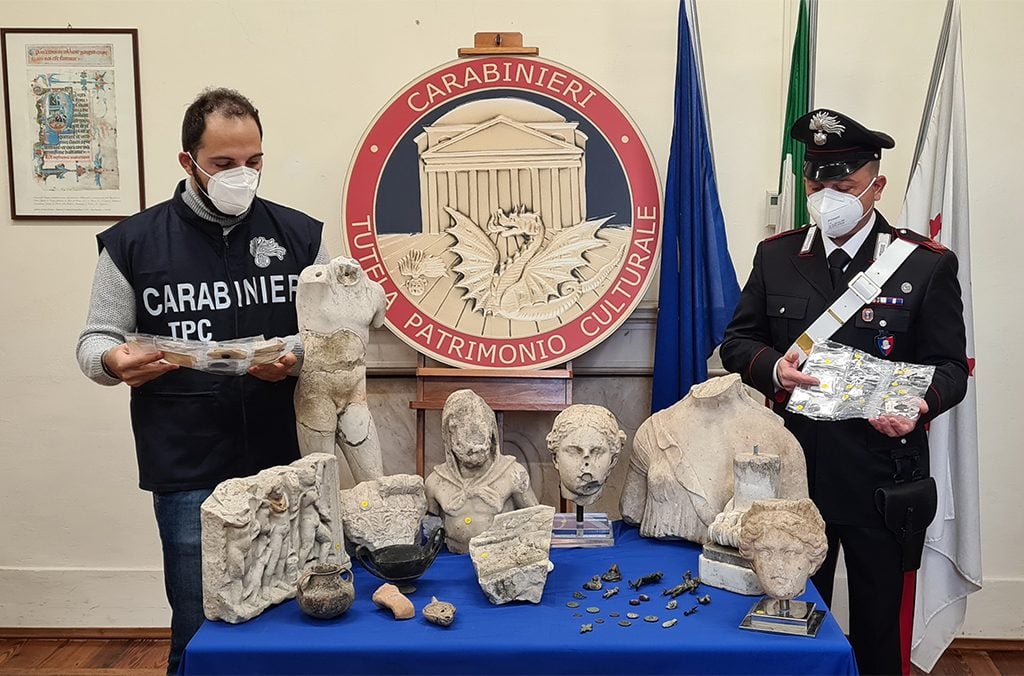
Authorities have recovered 147,050 looted cultural goods since launching Operation Pandora in 2016.

Sarah Cascone

International law enforcement authorities in 28 countries executing the latest phase of Operation Pandora, an international crackdown on illegal cultural goods trafficking, seized 9,408 cultural artifacts between June and September last year, according to a new report by Interpol.
Fifty-two arrests were also made in connection with the seizures, which took place at airports, border crossings, auction houses, museums, and private homes. Authorities also monitored online marketplaces in conjunction with the National Police Force of the Netherlands.
The four-month Operation Pandora VI was led by Spanish authorities with international oversight from Europol, Interpol, and the World Customs Organization. Operation Pandora was first undertaken in 2016, and has resulted in 407 arrests and the recovery of 147,050 cultural goods to date.
Among the artifacts taken into custody in the most recent phase are furniture, coins, paintings, sculptures, musical instruments, and archaeological treasures, reports the Guardian.
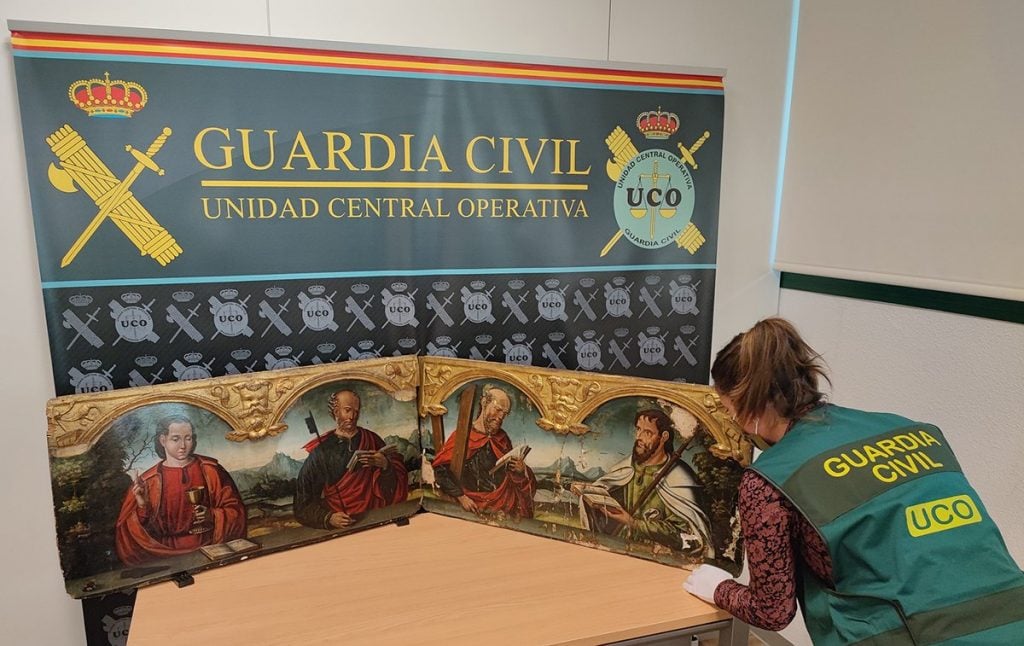
Paintings recovered by Operation Pandora VI, an international effort to combat illicit trafficking in cultural goods. Photo courtesy of Interpol.
French customs authorities alone seized over 4,000 archaeological objects, including 3,000 coins, all of which had been illegally excavated by just one person equipped with a metal detector—authorities from seven European agencies also seized 90 metal detectors before they could be used to loot archaeological sites.
U.S. Border Control picked up 12 Aztec and ancient Mexican artifacts smuggled in from Mexico, and Spanish National Police confiscated 91 golden coins from the Roman Empire that could have fetched up to €500,000 ($550,000) on the black market.
The Netherlands’ Art and Antiques Crime Unit recovered a pair of Kees Verweij paintings after investigating an Amsterdam auction house’s online sales catalogue, while Romanian police recovered a 13th-century processional cross stolen in 2016 from the Evangelical Church Museum of Cisnadie. The theft had been Interpol’s Stolen Works of Art Database, and authorities were able to identify the cross using the agency’s ID-Art mobile app.
Today, there are still 170 active investigations related to the operation, with more arrests and seizures expected in the coming months.
See more photos of the recovered artworks and artifacts below.
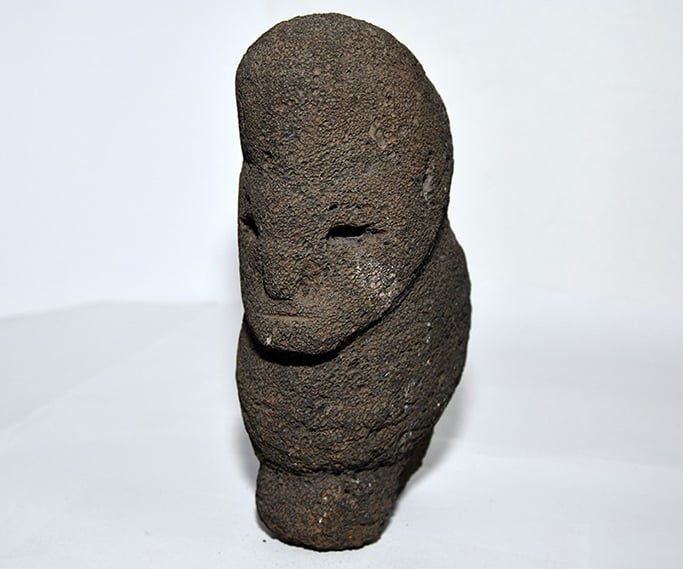
An artifact from Cyprus recovered by Operation Pandora VI, an international effort to combat illicit trafficking in cultural goods. Photo courtesy of Interpol.
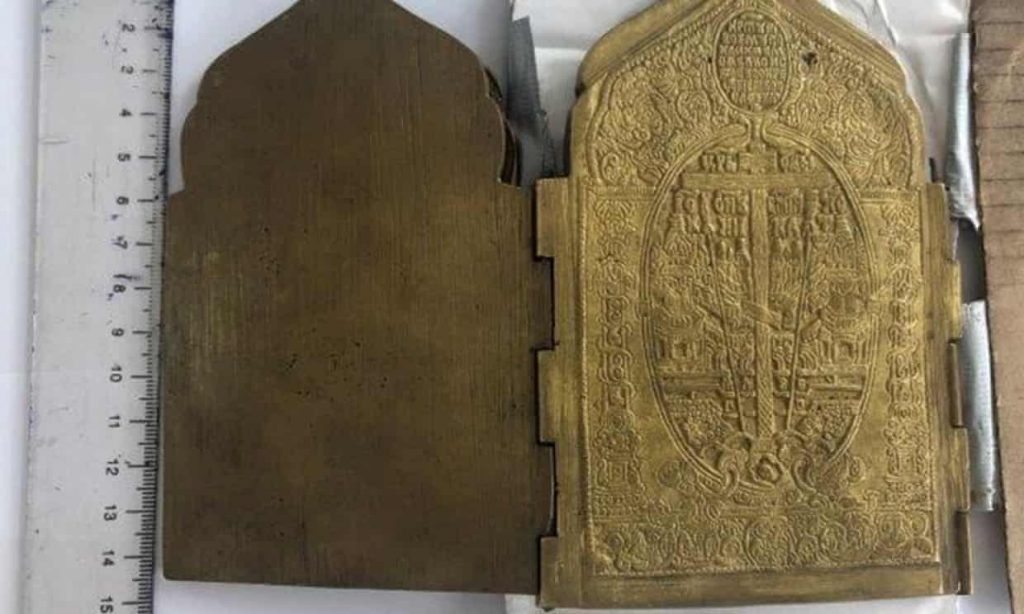
An artifact recovered by Operation Pandora VI, an international effort to combat illicit trafficking in cultural goods. Photo courtesy of Interpol.
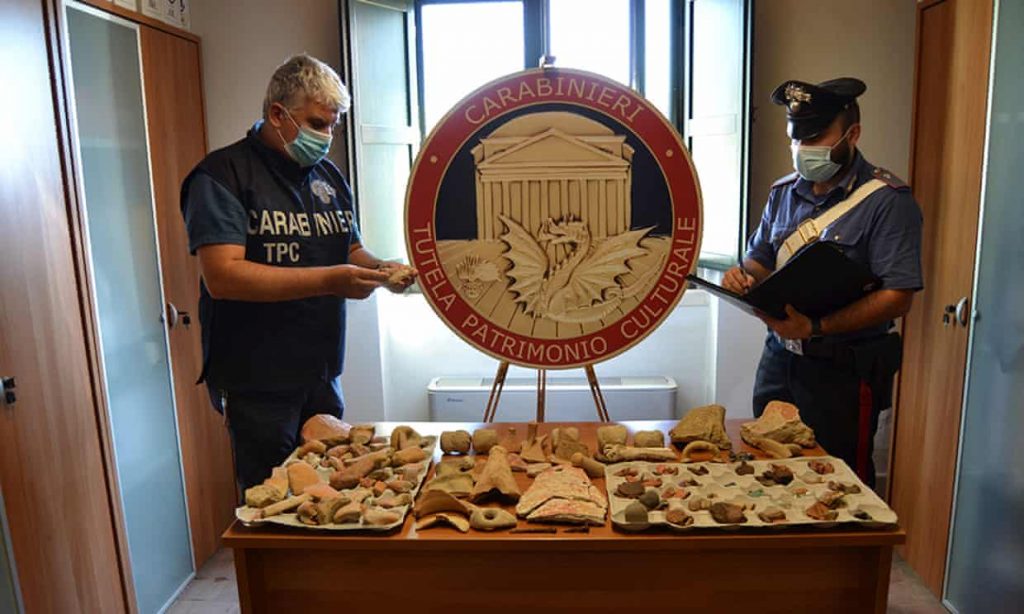
Artifacts recovered by Operation Pandora VI, an international effort to combat illicit trafficking in cultural goods. Photo courtesy of Interpol.
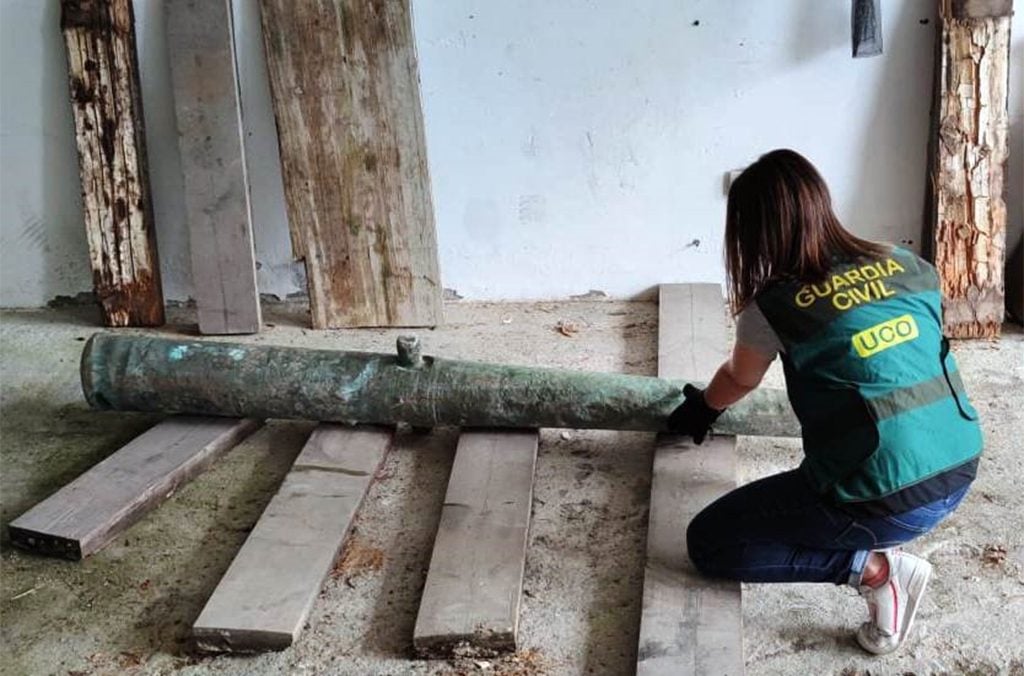
A cannon from a Galician shipwreck recovered by Operation Pandora VI, an international effort to combat illicit trafficking in cultural goods. Photo courtesy of Interpol.